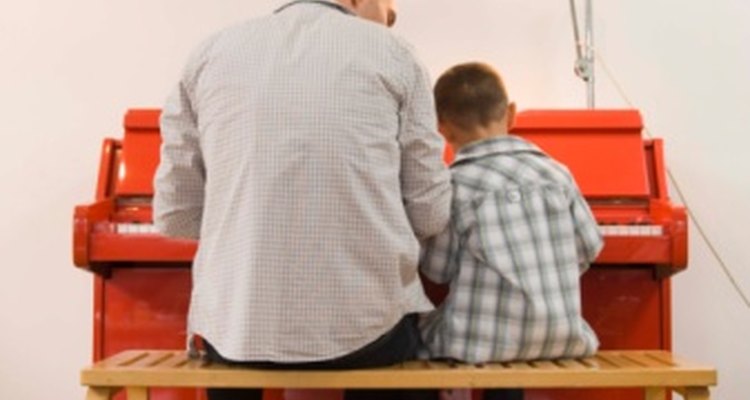
Every child has a father but not every child has a father consistently in his life. This state of fatherlessness has a psychological effect on young people as they grow up and form their own identities. The aftermath of being raised without a dad can continue into adult development as well. Certainly, having a dad in your life doesn’t guarantee emotional wellness, just as not having one doesn't doom you to psychological problems. However, fatherlessness can certainly have noticeable effects.
Behavioral Problems
Studies show that kids without active relationships with their fathers struggle with acting out behaviorally, such as in defiance and rebellion. These behaviors extend beyond a child's normal challenge against authority. Fatherless children may experience frustrations about their life situations that manifest in disruptive actions.
Depression/Suicide
Depression, and subsequently suicide, are unfortunate psychological effects of dealing with life absent of a dad. Kids must learn to cope with the sadness of an absent father. They may be depressed and feel that, not only is the parent directly rejecting them by his absence, but it also because they are unlovable. Statistics show children in this position are also 4.6 times more likely to choose suicide over those with both parents in their life.
Trouble Socializing With Others
Due to various behavioral problems, fatherless kids may have a hard time interacting socially with their peers because of their more disruptive actions. Children with these challenges may then separate themselves because they don't fit in as well and this isolation further exacerbates behavioral issues. Specifically, kids may have trouble connecting with others on an emotional level because this was lacking in the relationship with a key parent.
Tolerance of Abuse
As she grows up, the fatherless daughter is more likely to tolerate abusive behavior from others. She may develop a feeling that she lacks control of situations in her life and eventually develop a victim mentality. She may also feel she doesn't deserve to be treated well because she felt mistreated by her father.
Anger
A common psychological affect of fatherlessness is feeling angry. Typically, at the core of anger is hurt and pain which stems from the rejection felt from their parent. Anger manifests itself in various forms such as verbal outbursts, cutting themselves and even physical violence.
Related Articles

Parental Rejection in Adulthood

How Does an Overbearing Mother Affect a ...

The Negative Effects of Extramarital ...

Consequences of Absent & Neglectful ...

The Long-Term Effects of Being ...

Aggressive Behavior in Adults

How Children Are Affected When Living ...

Importance of the Brother Sister Bond

The Effects of Children Witnessing ...

Why Are Some People Spineless?

Effects of Overbearing Mothers on Their ...

Traumatic Effects of a Bad Marriage on ...

Signs of Disconnected Couples

How Poor Relationships Affect the Family

The Effect on Men That Grow Up Without ...

Family Conflict Examples

How Does a Bad Childhood Affect ...

The Emotional Effects on the Father ...

The Effects of an Absent Mother Figure

How Does a Controlling Spouse Affect a ...
Writer Bio
Based in the Midwest, Gina Scott has been writing professionally since 2008. She has worked in real estate since 2004 and has expertise in pop culture and health-related topics. She has also self-published a book on how to overcome chronic health conditions. Scott holds a Master of Arts in higher-education administration from Ball State University.
Photo Credits
Jupiterimages/Polka Dot/Getty Images